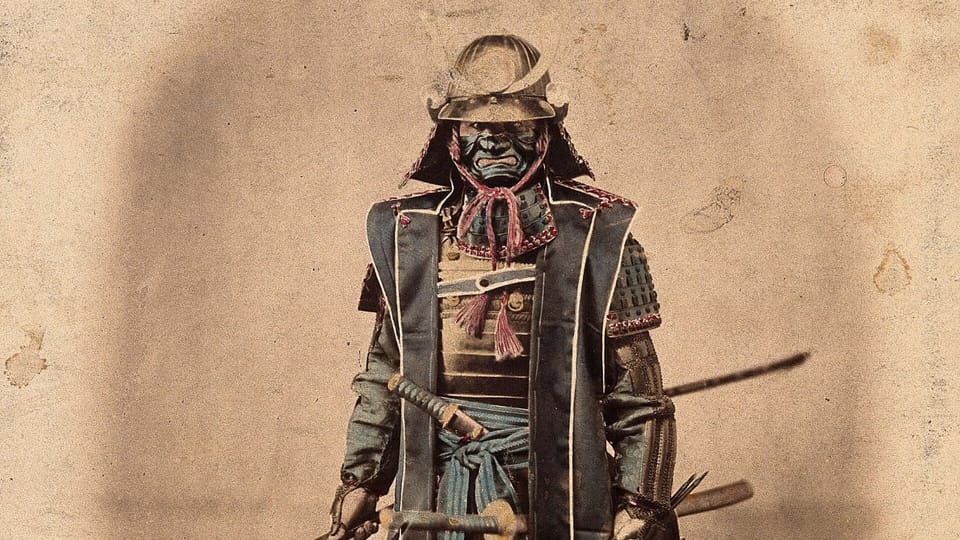Samurai Bloodlines: Honor, Inheritance, and the Family Business

So let’s cut the crap and talk about the real deal: samurai weren’t lone wolves with katanas and quiet vengeance issues. They were part of dynastic machines—families. Families that didn’t just raise you, they owned you. The ie wasn’t a household, it was a damn institution. Your name, your sword, your last breath? It all belonged to the ie. You weren’t born free. You were born into a legacy with a ledger full of debts, most of them written in blood.
Back in the day—like real back, Kamakura to Sengoku era, your samurai clan wasn’t just your ride or die, they were your government. You answered to the head of house, not the emperor, not the shogun. The ie ran its own show: land, rice, soldiers, vendettas—all in the family. And if the family line looked shaky? You’d adopt a dude with the right skill set or marry off your daughter to an upstart ronin just to keep the banner flying. Blood wasn’t sacred. Continuity was.
In this world, dying was easy. Failing the family was not.
Being born first in a samurai house wasn’t a party. You got the land, the armor, the head seat at dinner, and a metric ton of pressure. The family name rested on your shoulders like a death sentence waiting to be carried out. Screw up, and it wasn’t just you who went down in flames, your ancestors groaned in their graves, and your descendants? Erased. Gone. Like you never existed.
Younger brothers? If they were lucky, they became monks or paper-pushers. Daughters? Pawns. Diplomacy in kimono form. But don’t get it twisted—some of them played the game harder than any man. Tomoe Gozen didn’t just wear armor, she broke faces with it.
Now let’s talk about ghosts. You think your family pressures you? Imagine a dead grandfather judging every step you take. Samurai didn’t just respect their ancestors, they feared them. There were shrines in the house, rituals on the calendar, and eyes—always eyes—watching from beyond the grave. Honor wasn’t a personal virtue; it was a chain dragging you through time, and every ancestor you disappointed pulled on it harder.
Disgrace the ie, and you weren’t just disowned, you were unmade. Kaieki. No status. No name. Just a shame-shaped hole where a samurai once stood. Better to end it with a blade across your belly than live like that. And yeah, that’s why seppuku wasn’t suicide, it was damage control.
Let’s fast-forward to the chaos of the Sengoku period, a time when loyalty was conditional, steel was currency, and betrayal was just a Tuesday. Samurai families made deals, broke them, married enemies, murdered brothers, and justified it all with one word: giri. Duty. If your lord said, “Cut down your cousin,” you did it. If your father said, “Give your daughter to a bastard son of a rival clan,” you did that too. You didn’t cry about it. You bowed and did the damn thing.
Look at Akechi Mitsuhide, turned on Oda Nobunaga, went from trusted retainer to name-that-shall-not-be-spoken. His mistake? Underestimating the wrath of family ties and the legends they grow into.
Then came Tokugawa Ieyasu, and he did what every empire builder does, he made the chaos boring. Locked it down with rules, paperwork, status systems, and family registries that ran tighter than a mob ledger. You needed permission to marry, move, breathe. Samurai became administrators with swords collecting dust. But the ie? It still mattered.
They codified family honor. They stitched it into school curriculums. Family crests (mon) weren’t just decoration, they were an armor made of heritage. A symbol that told the world: “This bloodline’s still kicking. Come test it.”
Then boom, Meiji Restoration. Western suits, steam engines, guns. The samurai class? Disbanded. Just like that, centuries of bushido packed up like a theater set after the last act. Some families faded. Others got clever. They morphed into scholars, soldiers, bureaucrats. But that weight? That legacy? It didn’t vanish. It simmered. In quiet rooms, in moral codes, in dusty shrines tucked behind government buildings.
So what’s left? The swords are gone. The castles are tourist traps. But the ie still lives. It’s not about blood anymore. It’s about identity, memory, the names that echo louder than the battles they fought in. A samurai wasn’t just a warrior. He was a carrier of legacy, a vessel for the ambitions of the dead and the expectations of the unborn.
And that, that’s the twist ending. You think this is about swords and stoicism? Nah. It’s about a story you’re born into.
Because in samurai families… the name lives on.
